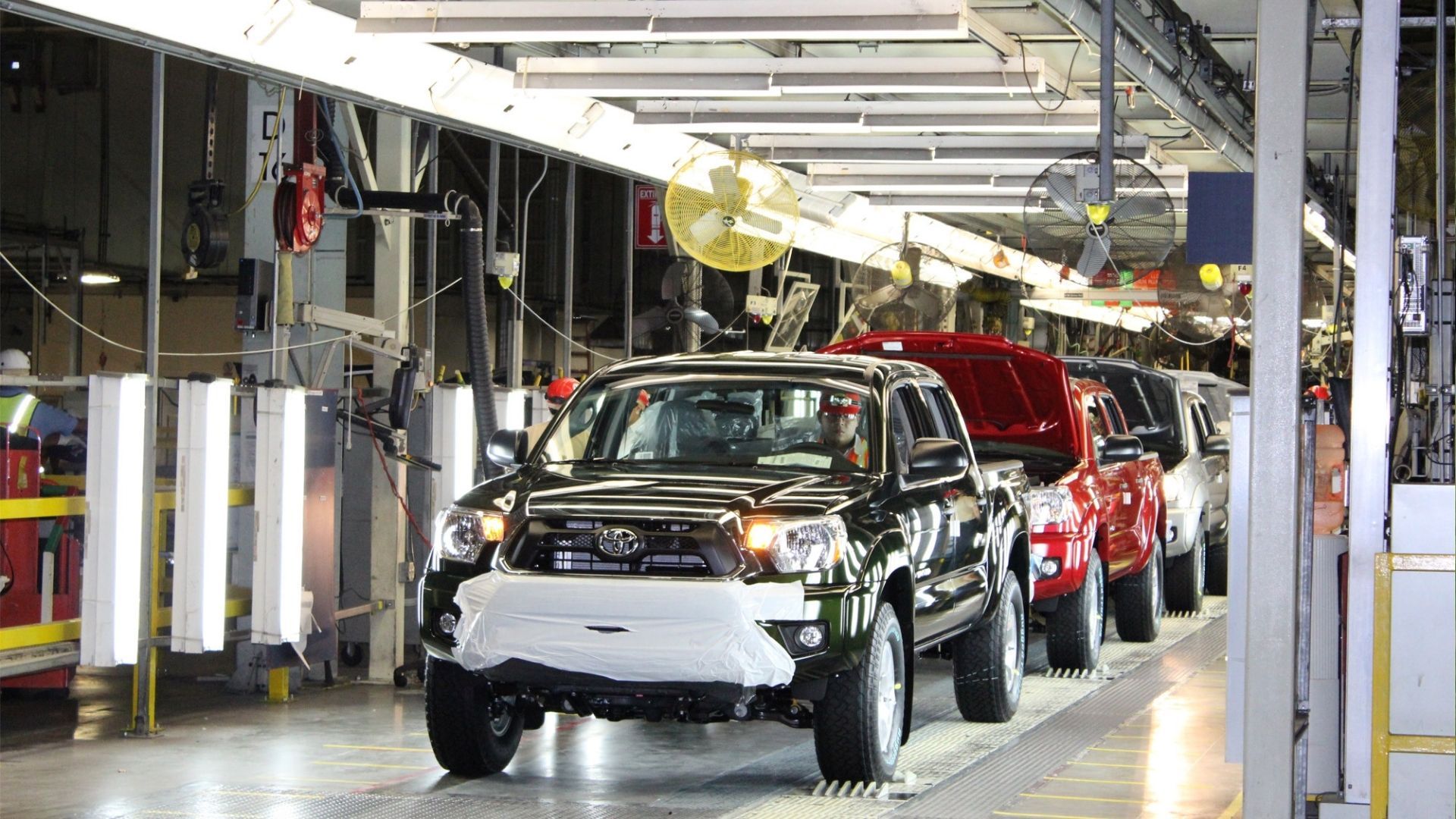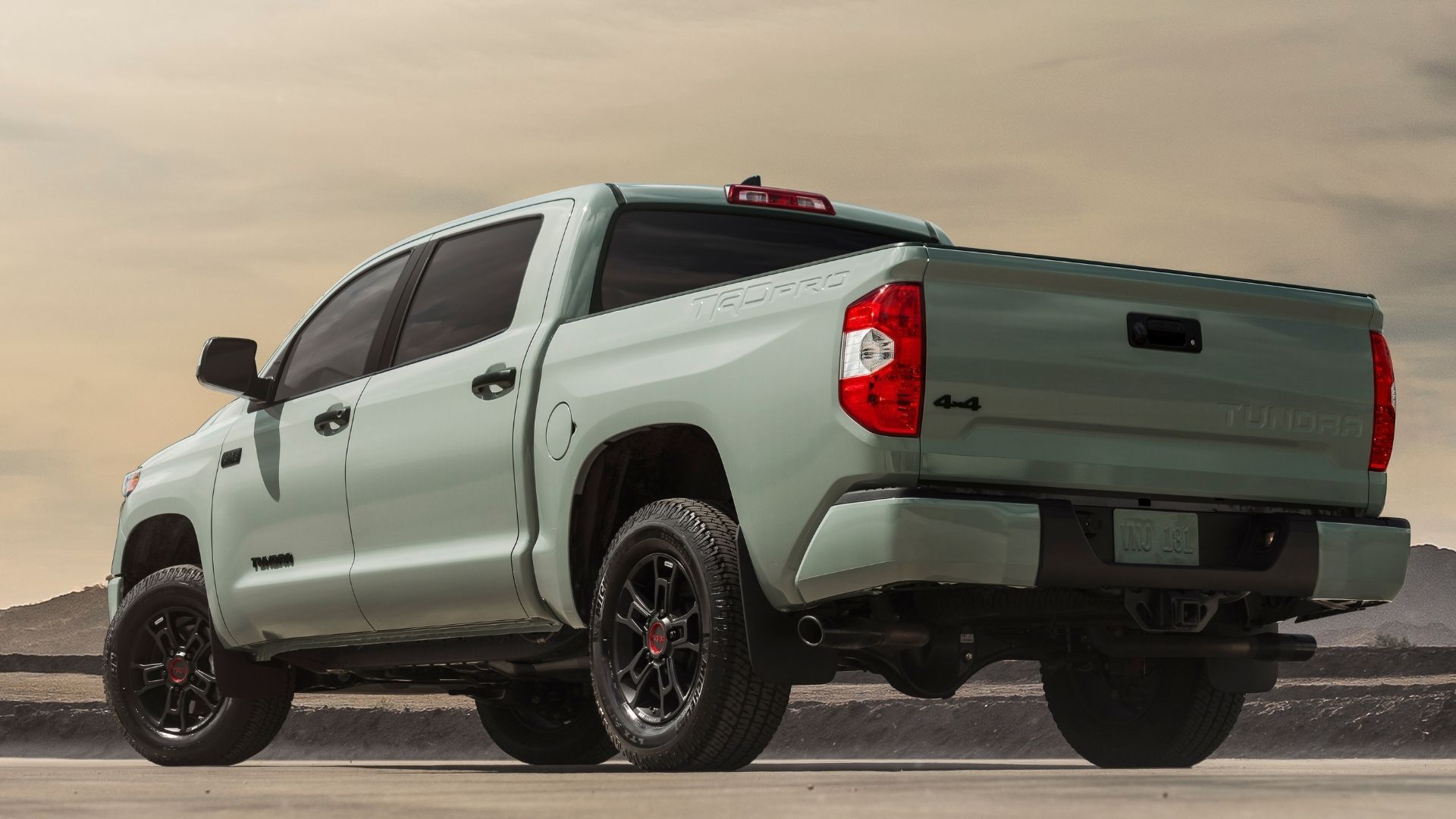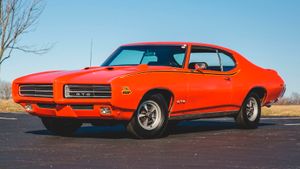Well, well, well…
Instead of getting walloped like its peers, Toyota in North America seems to have completely sidestepped the chip shortage for now. Since late 2020, automakers have been trimming back production, even shuttering entire factories for weeks at a time, all thanks to a global shortage of semiconductor chips. And each time industry analysts try forecasting the end of the shortage, it seems to be pushed out even further, with the some of the latest reports stating it might last until spring of 2022.
GM has shut down C8 Corvette production, but not because of the chip shortage. Learn why here.
What doesn’t seem to make sense is how just-in-time inventory management, a technique Toyota took to long ago, has been blamed by some for the chip shortage. However, Toyota CFO Kenta Kon told Reuters the auto giant changed its supply-chain management practices after the Fukushima earthquake in 2011. The strategic shift allows for assessing “alternative products” quickly in case of disaster. That, presumably, allowed the company to quickly adjust as microprocessor chips for the auto industry started to become scarce.
However, just because Toyota’s North American operations haven’t been affected by the chip shortage yet doesn’t mean the automaker is out of the woods. Kon said the situation is dynamic, so the company needs to stay on its toes since it could feel the pinch later this year.

A recent report from AutoForecast shows the Big Three automakers are really taking it on the nose here in North America. It estimates Fordhas cut 324,616 from its production lines so far, while GM hasn’t fared much better with an estimated 277,966 cut. Stellantis is hot on GM’s heels with an estimated 252,193 cars eliminated from its production lines.
In the report, the model line most impacted by the chip shortage is the Ford F-series, with 109,710 units cut from production. Second is the Jeep Cherokee at 98,584 units, and the Chevy Equinox at 81,833 units.
As for foreign automakers in the North American market, AutoForecast estimates Nissan, Honda, Volkswagen, Subaru, etc. have had to cut somewhere between 20,000 and 46,000 cars from their production schedules.

With North American vehicle production seemingly unchanged, and the US being the largest market for the automaker, Toyota seems poised to take an even more commanding lead as the largest automaker in the world. In fact, the company predicts its profits would return to what they were before the pandemic struck. Meanwhile, projections are that the chip shortage will cost the auto industry billions of dollars in lost profits in 2021.
In the meantime, this chip shortage has led to increasing prices for both new and used cars. Some dealerships have large empty areas on their lots as customers get on waiting lists for the chance to pay top dollar for certain high-demand, low-supply vehicles which normally would be in fairly high supply. This has put many people who already were negatively impacted financially by the government-mandated shutdowns in a tight position. Hopefully, a solution is on the horizon, but it might not be for some time.
Source: Reuters, Automotive News






